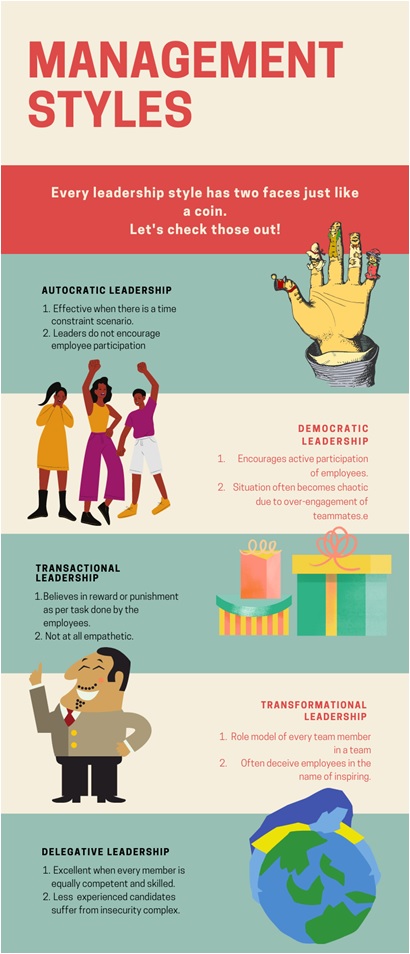A True Leader Knows To Mold Herself!
20th December 2021
There has always been a very controversial agenda that are leaders born or made and till today, the debate goes on. In my opinion, leaders are neither born nor made but there is always a flow and leaders mold themselves as per the scenario demands. There is no particular leadership style that is effective in every situation. Instead, leaders have to upgrade themselves and change their styles depending upon the condition of the ongoing scenario.
The master trainer program is one such effective course that helps people to understand different formats of leadership and management styles. Besides, it empowers employees by guiding them with 21st-century training techniques along with training delivery skills.
Leaders have a unique vision that aligns with that of an organization and they know how to execute strategies to reach the target. They are aware of the knowledge and skill employees have and thus, they work on their strengths to make employees more efficient and productive. Leaders give utmost importance to employee engagement and a true leader will never stick to one format in order to produce the best outcome.
What are the major types of leadership?
There are 5 main types of management styles and each of them is unique in its own form. Yet, all these formats have drawbacks and thus a good leader should never be determined on executing a single form of management style in every aspect.
An autocrat or an authoritarian leader is someone who believes that she/he is the most skilled and knowledgeable person in a team. Thus, Autocratic leadership often leads to employee grievances because often they feel that their inputs are not valued enough which demotivates them to a great extent. Consequently, there is a lack of creativity and innovation as the leader takes decisions on her/his own without consulting with the employees.
This kind of leadership does not believe in formulating exclusive strategies to mitigate any risk factor and is biased towards pre-determined methodologies. Hence, the group involvement is theatrically negligence that empowers the employee turnover rate.
If we look at the other side of the coin, autocratic leadership is best when a job has to be done within a limited time period. Employees are aware of what is the leader is expecting from them and hence though the communication is one-directional, yet it is crisp and clear.
Let's turn our focus into another leadership style, the Democratic or Participative style of leadership. Many will agree to the fact that is the best kind of leadership that should be practiced in an organization but there are loopholes which if not checked properly can backfire.
Just like the name suggests, this format believes in supreme democracy and encourages employee engagement in a massive manner. A participative leader values the emotions of her/his teammates and thus allows them to actively take part in any decision-making process. Employees feel confident and thus they are motivated enough to accomplish a task perfectly.
A democratic leader always encourages creativity which results in innovative solutions, effective enough to eradicate any risk factor. However, a prime trait of this management style is that every decision requires a lot of time to get set. Every member tends to give individual input and sometimes it becomes highly chaotic. As leaders give a lot of options to team members, their engagement level surpasses the bar, and finishing off a task becomes time-consuming.
There are numerous numbers of leaders who believe that every task demands a reward or punishment as per how the job has been done. Such a habit of transaction makes them transactional leaders and this format is totally based on a give-and-take strategy. Transactional leadership implies rules on teammates and expects employees to get it done efficiently.
Over here, employees follow the leader rather than admiring her/him. The leaders create goals and communicate clearly with the employees because they focus on achieving the target to a great extent. It might sound similar to the autocratic format but in this case, employees can choose the reward once they have accomplished a task perfectly.
Since this is a give-and-take policy, leaders only aim at success rate and hence they are not at all empathetic. They follow established rules and do not entertain unique or transformational tactics to deal with any case, as a result of which, the creativity of the team drops down drastically.
Some employees love to walk in the path laid by their leaders because those leaders seem to motivate them and inspire them to get a certain task done. Such leaders have often ended up transforming mediocre employees into the most valuable resource of the organization just by identifying their skills and inspiring them to work hard. These leaders are known as transformational leaders.
The Transformational Management style aims at recognizing the strengths of employees and polishes those skills to produce extraordinary performance. This format values the employee-leader relationship to a great extent and it often results in a low employee turnover rate. Employees need constant feedback from leaders as they fear that a single mistake will ruin the beautiful relationship with their leaders and the latter will be heartbroken. Transformational leaders are role models of employees.
But there is something odd in every aspect of our life and this world is predominated by cunning political minds. Thus, many times it has been observed that in the name of inspiration, leaders deceive employees heartlessly. Once the employees understand that their trust has been played on, they restrict themselves from taking another step as their confidence has already fallen by then.
A certain format of leadership prefers passing on the baton of responsibility to the team members. This practice of delegating responsibilities to teammates has given birth to the Delegative leadership style, also known as "laissez-faire leadership". If a team is comprised of both highly experienced and less experienced people, always the former aces the game.
These super-skilled teammates always take the advantage of their experience and get their job done perfectly. Whereas, novice members often suffer from insecurity complex in such a scenario. Decisions making process in such a format is mostly inspired by the experienced members and they find it difficult to adapt to the mentality of the less experienced people.
Delegative leadership works the best when every member of a team is super talented and pretty competent to do their individual task. However, Command responsibility is not properly defined in this management pattern.
So, which one is the best format?
The answer is NONE of the above-mentioned leadership styles is the best format. If you have gone through the types of leadership styles I've mentioned along with the basic and prime features, you will understand that there are loopholes in every format. Thus, if loopholes are not checked properly, the effect is bound to be adverse.

For example, an organization is encountering a new risk that has no past existence over there. In order to combat the risk, therefore, a fresh and unique idea is required, and over here a Democratic leader will work much better than an autocrat because the former encourages unique ideas.
But what if to eradicate the risk, the organization does not have much time left? The participative style of leadership will always take time to take decisions unlike the autocratic one whereas, the latter does not have any unique idea. In such a scenario, a combination of autocratic and democratic leadership works the best. True leaders will always be able to take correct decisions irrespective of the style they follow.
Let's talk about another scenario. An employee is quite happy working under a leader who loves rewarding her/his teammates whenever they get tasks done perfectly. His track record is extremely neat and his dedication is really notable. Out of the blue, one day, that employee falls extremely sick and becomes unfit to give a vital presentation.
The leader on the other hand is rigid with his format and believes in punishing an employee if she/he fails to do a job irrespective of any reason. As the employee fails to deliver the vital presentation, that leader puts a barrier in her/his upcoming promotion which everyone is pretty sure of.
Now, had she/he not been such a transactional leader, she/he would have been empathetic towards the wretched condition of that employee. Thus, causing a hindrance in the path of the promotion was a fair injustice.
Therefore,
We can conclude that there is no specific format of leadership that is proven to be the best for all kinds of scenarios. It is just that a leader who has true leadership skills will always use her/his mind to judge a situation and pass a verdict on the basis of that. The Master trainer program does a remarkable job by sharing audio-visual case studies with the learners and helping them to understand how they should in according to a situation irrespective of their leadership style.
Written By: Sonal Agrawal
Leave a Reply
Recent Posts
- Make Language Learning Fun 5 FunFilling ESL Activities For Teachers To Implement In ESL Classroom
- The Role Of Teachers As Counselors In Eradicating Students Fears
- Achieving Financial Stability For Special Need Parents
- Make Teaching English To Beginners Fun And Engaging With Our 5 Effective Tips
- Achieve A Healthy WorkLife Balance As A Teacher With This Alternative
- Foster A Growth Mindset In Your School Students Teachers And Staff With Proven Strategies


